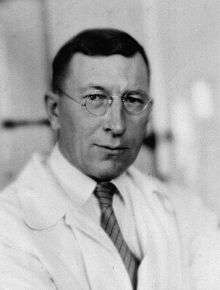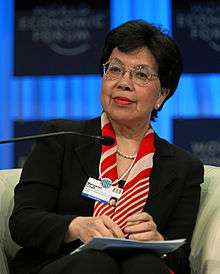Schulich School of Medicine & Dentistry
| Schulich School of Medicine & Dentistry | |
|---|---|
|
Medical sciences building at the Schulich School of Medicine and Dentistry | |
| Established |
|
| Type | Faculty (medical and dental school) |
| Academic affiliation | University of Western Ontario |
| Location |
London, Ontario, Canada 43°00′29.84″N 81°16′18.82″W / 43.0082889°N 81.2718944°WCoordinates: 43°00′29.84″N 81°16′18.82″W / 43.0082889°N 81.2718944°W |
| Dean | Michael Strong |
| Academic staff | 1,800 |
| Students |
591 (MD students) 224 (DDS students) 652 (BMSc students) |
| Postgraduates | 746 |
| Doctoral students | 568 |
| Website |
www |
|
| |
The Schulich School of Medicine & Dentistry is the combined medical school and dental school of University of Western Ontario, one of 17 medical schools in Canada and one of six in Ontario.
The medical school was founded in 1881, and merged with the dental school in 1997. The school is the seventh oldest in Canada, and the third in Ontario after Toronto's and Queen's medical schools. Schulich Medical School is based in London, with an undergraduate medical campus in Windsor.
The school emphasizes a patient-centered approach to medicine, introducing new students to clinical methods in the first few weeks.[1] Schulich has consistently done well in residency matches, with the fourth highest match rate in Canada in 2012 (95.9%).[2] The school has produced a number of notable alumni, including the discoverer of Barr bodies Murray Barr, "the Father of Family Medicine" Ian McWhinney, and the current head of the World Health Organization (WHO) Margaret Chan.
Like other Canadian medical schools, admission to Schulich School of Medicine is highly competitive. The school receives more than ten times as many applications as there are places available. For the 2012/2013 cycle, Schulich received 14 applications for each available place with an acceptance rate of less than 7%.[3]
Admissions
The Doctor of Medicine (MD) program at the Schulich School of Medicine & Dentistry receives approximately 2000 applications each year, of which 450 applicants are invited to interview for 171 spots (133 London campus and 38 Windsor campus). Schulich Medicine is unique in that it does not require prerequisite courses, thus encouraging students from a variety of disciplines to apply. Furthermore, no preference or advantage is given to specific programs. Schulich Medicine does not accept international students for the undergraduate program, but does accept students from provinces outside of Ontario.
Minimum requirements
Applicants are invited to interview based on minimum GPA and MCAT requirements. For the 2013/2014 application cycle, these minimums were a 3.70 GPA, and at least a score of 12 BS (89th-95th percentile), 11 VR (85th-96th percentile), 9 PS (58th-71st percentile) on the MCAT.[4] These cutoffs vary year to year based on the applicant pool. Students whose scores below any of the cut-offs are not considered and will automatically not receive an invitation to an interview. Students from Southwestern Ontario are required to have the same academic credentials, but are allowed to have slightly lower MCAT scores for individual sections (no lower than 8/section, but 32 overall still required). It is unknown if these students receive an advantage post-interview, as Schulich Medicine does not disclose their admission calculations. Furthermore, credentials for the matriculating class are not released to the public, but have been historically higher than the minimum requirements.
Degrees offered
Medicine (MD)

The school's medical program consists of four years of studies; two of which are pre-clerkship, one is a rotating clerkship and the final year is an integration and consolidation year devoted to electives in preparation for the chosen speciality of the student.
Dentistry (DDS)
The school's dentistry program is a four-year program offering a DDS degree. The school also offers Canada's first accredited Qualifying Program for foreign-trained dentists (ITD), as well as a Post-graduate programs in Clinical Orthodontics.[5]
Medical sciences (BMSc)
The basic medical sciences undergraduate program is a joint program offered by the Schulich School of Medicine and Dentistry and the Faculty of Science.
Full list of degree programs offered
- Doctor of Medicine (MD)
- Doctor of Dental Surgery (DDS)
- 48 postgraduate medicine (residency) training programs
- Bachelor of Medical Sciences (BMSc - General/Honours)
- MSc & PhD programs in basic and clinical sciences
- Combined MD/PhD
- Combined MD/DDS (Oral & Maxillofacial Surgery Residency)
- Combined MD/Engineering degree
- Combined BMSc/HBA (Honours Business Administration) degree
- Graduate Orthodontics
- Qualifying Program (for foreign-trained dental graduates)
Research opportunities
Undergraduate medical students have the opportunity to conduct basic or clinical research under the supervision of a Schulich faculty member in the London or Windsor area. There are two main programs: Summer Research Training Program (SRTP) and Schulich Research Opportunities Program (SROP)
Summer Research Training Program
The goal of the SRTP program is to introduce medical students to basic or clinical research and stimulate their interest in academic medicine. Students pursue a medical research project during the summer months for two years prior to clerkship. Dental students have similar opportunities. A two-year commitment is mandatory for medical students to fully develop the project; as such, only first year student may apply to the program. However, for dental students such two year commitment is not obliged. Approximately 10-15 students are selected to enter these programs, depending on the feasibility of the project and the availability of funds. The Schulich School of Medicine & Dentistry provides funding for the student equal to the current CIHR Summer Studentship rate.
Medical Students are required to attend weekly seminars during five of the ten summer months, where they listen to and critique other projects. An interim report is required at the end of the first summer, and students are required to present their final results at the SRTP Student Symposium at the end of the second summer. Students are also eligible for awards at the completion of the program. Historically, students have been successful in producing publications and conference abstracts.
Proposed projects are made available online each January. Students are invited to review the projects, contact faculty and apply to the program. Applications are due in February, with funding decisions finalized in March.
Affiliated teaching hospitals
| Institution | Main specialty | Affiliated research arm |
|---|---|---|
| Children's Hospital (London Health Sciences Centre) | Medical Imaging, Neurosciences, Oncology | Children’s Health Foundation |
| University Hospital (London Health Sciences Centre) | Anesthesiology, Medical Imaging, Multi Organ Transplantation, Neurosciences, Oncology | Lawson Health Research Institute |
| Victoria Hospital (London Health Sciences Centre) | Anesthesiology, Medical Imaging, Multi Organ Transplantation, Neurosciences | Canadian National Institute for the Blind |
| South Street Hospital (London Health Sciences Centre) | Anesthesiology, Cardiac Care, Medical Imaging, Multi Organ Transplantation, Neurosciences, Oncology | Canadian National Institute for the Blind, Child Health Research Institute |
| St. Joseph’s Hospital (St. Joseph's Health Care London) | Urology, diabetes, rheumatology, pain management, osteoporosis, hand and upper limb, eye care, lung disease, ears, nose and throat, head and neck surgery, gastroenterology, breast care | The St. Joseph’s Health Care Foundation |
| Parkwood Hospital (St. Joseph's Health Care London) | Complex care, rehabilitation, palliative care, specialized geriatric services | The St. Joseph’s Health Care Foundation |
| Regional Mental Health Care (St. Joseph's Health Care London) | Mental healthcare | |
| Mount Hope Centre for Long-Term Care (St. Joseph's Health Care London) | Long-term care, mental health | The St. Joseph’s Health Care Foundation |
Notable faculty and alumni

Since their founding, the medical and dental schools have produced a number of famous physicians and inventors, including:
- Frederick Banting: Surgeon; primary discoverer of insulin; lecturer in orthopedics and anthropology (1920-1921)
- Margaret Chan: Current Director-General of the World Health Organization (WHO)

- Jane Philpott: Current Minister of Health and Member of Parliament for Markham-Stouffville
- Henry J.M. Barnett: Neurologist; expert in the medical management of stroke; along with Charles Drake, co-founder of the Department of Clinical Neurological Sciences at University Hospital (London)
- Charles G. Drake: Neurosurgeon; established the University of Western Ontario as a neurosurgical centre of excellence; pioneered treatment of vertebral basilar aneurysms
- Gary G. Ferguson:[6] Neurosurgeon; internationally recognized as a leader on research in stroke prevention surgery
- Ian McWhinney: Family physician; known as the "Father of Family Medicine"; established the Centre for Studies in Family Medicine, often regarded as the premier research centre in Family Medicine in Canada
- Chil-Yong Kang: led the team that developed the only preventative HIV vaccine to use a genetically modified version of the whole virus at Western
- David Jaffray: a pioneer in medical imaging and professor at the University of Toronto

- Henri Breault: Chief of Pediatrics and Director of the Poison Control Centre at Hotel Dieu Hospital; he was instrumental in the creation of the first child-proof container
- Ken Hebel: prosthetic dentist, most recognized within the dental community as the owner of the Hands On Training Institute, an educational program that trains dentists in implant dentistry
- Robert Noble: involved in the discovery of vinblastine
- Murray Barr: discovered an important cell structure named after him: Barr body, an inactive X chromosome in a female somatic cell, rendered inactive by lyonization
- Gopal Bhatnagar: Head of Cardiovascular Surgery unit at the Trillium Health Centre; he led the team that performed the first cardiopulmonary bypass surgery in Canada in 2004 using the new Sorin mini-bypass technology[7]
- Jock McKeen: co-founder of the Haven Institute with Bennet Wong
- John David Spence: Medical researcher and professor at the University of Western Ontario
- Paul Polak: co-founder and CEO of Windhorse International
- A. Albert Yuzpe: obstetrician-gynecologist; known for his work on human fertility and emergency contraception. The Yuzpe regimen, is named after him
- Barry A. Love: cardiologist; Director of the Congenital Cardiac Catheterization Laboratory and Director of the Pediatric Electrophysiology Service at the Mount Sinai Medical Center and Assistant Professor of both Pediatrics and Cardiology at the Mount Sinai School of Medicine
- Jonathan Larmonth Meakins:surgeon, expert in immunobiology and surgical infections; the fourth person and first Canadian appointed Nuffield Professor of Surgery Professor at University of Oxford. He is a Fellow of Balliol College, Oxford and leads the Nuffield Department Surgery
- William James Roche: Canadian politician and Conservative Member of Parliament
- Donald Rix: pathologist and philanthropist
- Thomas Chisholm: lecturer
- Melanie Kok: Olympic Canadian rower
- James Collip: Dean of Medicine at the University of Western Ontario, and part of the Toronto group which isolated insulin
- Lawrence Sealewyn Holmes: dermatologist and radiologist; noted philatelist
- John G. Kelton: Dean of Medicine at McMaster University Medical School and the McMaster Faculty of Health Sciences, developed a diagnostic test for heparin-induced thrombocytopenia
See also
Books
- Murray Llewellyn Barr 'A century of medicine at Western: a centennial history of the Faculty of Medicine, University of Western Ontario' (London: University of Western Ontario, 1977)
- John R. W. Gwynne-Timothy 'Western's first century' (London: University of Western Ontario, 1978)
- Ruth Davis Talman 'The beginnings and development of the University of Western Ontario, 1878-1924.' (MA Thesis, University of Western Ontario, 1925)
References
- ↑ Schulich School of Medicine and Dentistry. "Curriculum Philosophy". Retrieved 20 August 2013.
- ↑ CaRMS. "Match Results by School of Graduation" (PDF). Retrieved 20 August 2013.
- ↑ "Ontario Medical School Requirements" (PDF). Retrieved 20 August 2013.
- ↑ Schulich Admissions. UWO http://www.schulich.uwo.ca/admissions/medicine/requirements. Retrieved 31 January 2014. Missing or empty
|title=(help) - ↑ "DDS - Doctor of Dental Surgery Program". Retrieved 20 August 2013.
- ↑ Gary G. Ferguson
- ↑ http://hospitalnews.com/trillium-health-centre-first-in-canada-to-use-new-heart-bypass-technology/
| Wikimedia Commons has media related to University of Western Ontario. |
